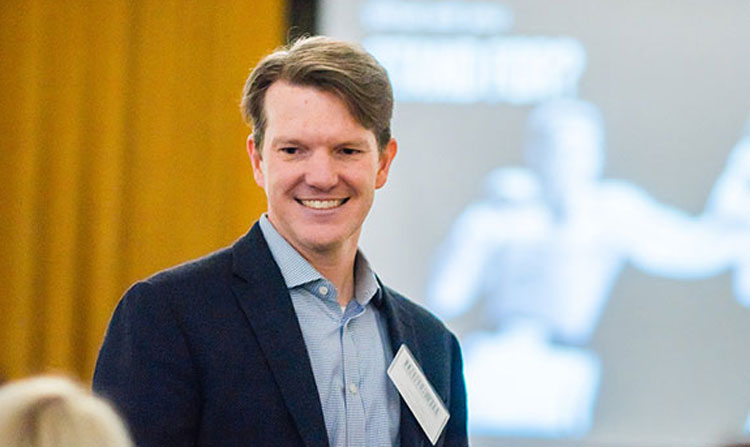As a Leader, Your Effectiveness Depends on the Strength of Your Relationships

As much as it pains some of us, we are all in the people business. Until the robots take over, we are always engaged with another person, be it a customer or a coworker, a loved one, or a stranger on the street.
Relationships are the core of leadership because leadership means influencing other people to act. Our success in doing so depends on many factors. Sometimes position power is enough to bend others to our will. Sometimes being charismatic is enough. Sometimes we can reward others for doing what we want by paying them or recognizing them publicly.
However, in Values Based Leadership, we take a different approach. One of our goals is building trust with others, and we can only do that by developing healthy relationships.
In 100 polls on what makes an effective leader, trust will be at the top of 99 of them. We all want to believe others will do what they say they will do; we want to believe they are not lying to us; we want to trust they have our best interests at heart. When formal leaders or organizations break that covenant, something precious and powerful is lost.
As many have said, trust is built in a lifetime and lost in a second. Through our own choices, we can influence how much others trust us and how much we are able to influence their behaviors. So how do we develop relationships and build trust? By adopting three behaviors.
- Understand Others’ Values, Styles, and Beliefs
The first step in developing healthy relationships is understanding others’ values, styles, and beliefs. This is all about social awareness; it means picking up on their cues, observing their behaviors, and talking with them about what they think, feel, and need.We don’t always have the luxury of getting to know people as deeply as we would like, so we may have to use a few brief interactions to inform our understanding of others. Most human beings, fortunately, are exceptional at picking up cues from other human beings. Unfortunately, we are often terrible at using that information effectively.That’s why mastering this behavior requires us to choose to pay more attention to the cues of those around us. It takes listening, observing, and reflection; mostly, it takes curiosity. We must care enough about others to notice their cues.
There is plenty to get in the way of our curiosity about others: primarily our own stuff, our own emotions, or our own challenges. We may not like these others, we may not respect them, and we may not trust them. We may not see the need to care. However, if we want to build trust or influence, we must understand them.
- Empathize with Others
A big part of understanding others and building trust with them is empathizing with them. Empathy means understanding why people feel the way they do. It does not mean agreeing. It means understanding.To empathize, first we have to be curious about how other people are feeling, then seek to understand why—all without judgment. Even if we disagree. Even if we have our own emotional stuff going on.Empathy means validating what others are feeling and reflecting that back to them. It means being able to take another person’s perspective and gain insight into what they are feeling and why they are feeling the way they do.
To empathize, name the person’s emotion: “It sounds like you feel x.” Then validate that emotion: “That must be y.” For example, “It sounds like you had a great day. That must feel really good!” or “It sounds like you are frustrated. That must be irritating.” Even if you get the emotion wrong, it invites the other person to clarify how they are feeling. When you get it right, it can feel pretty good to the other person.
Want to strengthen your relationships at work and at home? Try empathizing. Stop telling people how to feel and halve the amount of advice you give.
- Support the Success of Others
Adapting our behavior—making conscious choices about how we show up—is the final piece to this puzzle. Often, people have questions around this one: Why adapt to others? Isn’t my goal to be authentic, to be true to myself?In general, when we are true to ourselves, we are less anxious, more trusted, and more effective in relationships. However, it takes a surprising amount of work to recognize who we really are and what is important to us. It takes understanding our values, style, and beliefs, why we walk this earth, and what impact we have on others.But being our true selves is not enough to lead others. We have to be ourselves with skill. It’s the difference between honesty and brutal honesty: the real you may be brutally honest, but brutal honesty is not very effective and can undermine your relationships. There are many ways to be honest, but to do so with skill is more effective than telling everyone you meet that their babies are ugly.
Our goal should be skilled authenticity—being the best version of ourselves, not the unpracticed version. Remember our goal: support the success of others. If we want to maximize this impact, we will need to adapt our approach because everyone is different and requires different things from us as leaders. The challenge is being true to ourselves while adapting to meet the needs of others.
Become More Influential and More Effective
Ultimately, developing relationships is a choice. It means considering the other person’s values, style, and beliefs. It means understanding how they are feeling by empathizing. It means acting toward them with positive intent and genuinely leaving them a little better than we found them.
Want to be a better leader? Do this more.
By developing relationships, we will grow more influential and more effective. At the same time, we will make a positive difference in the lives of others. So, why not take steps to start understanding, empathizing with, and supporting others? After all, leadership is always about people, and our effectiveness depends on the strength of our relationships.
For more advice on how to develop healthy relationships and build trust, you can find InnerWill on Amazon.
Written by Dr. Thomas Epperson.
Have you read?
Everything You Need to Know About Adrien Rappoport.
CEO Spotlight: Lightricks CEO Zeev Farbman on the Evolution of the Creator Economy.
6 Ways to Prevent Fraud in Your Company.
Tech Leader Emil Michael on Building a Global Business.
Venus Global Chain Lists on P2PB2B on April 11th.
As a Leader, Your Effectiveness Depends on the Strength of Your Relationships by Dr. Thomas Epperson.








